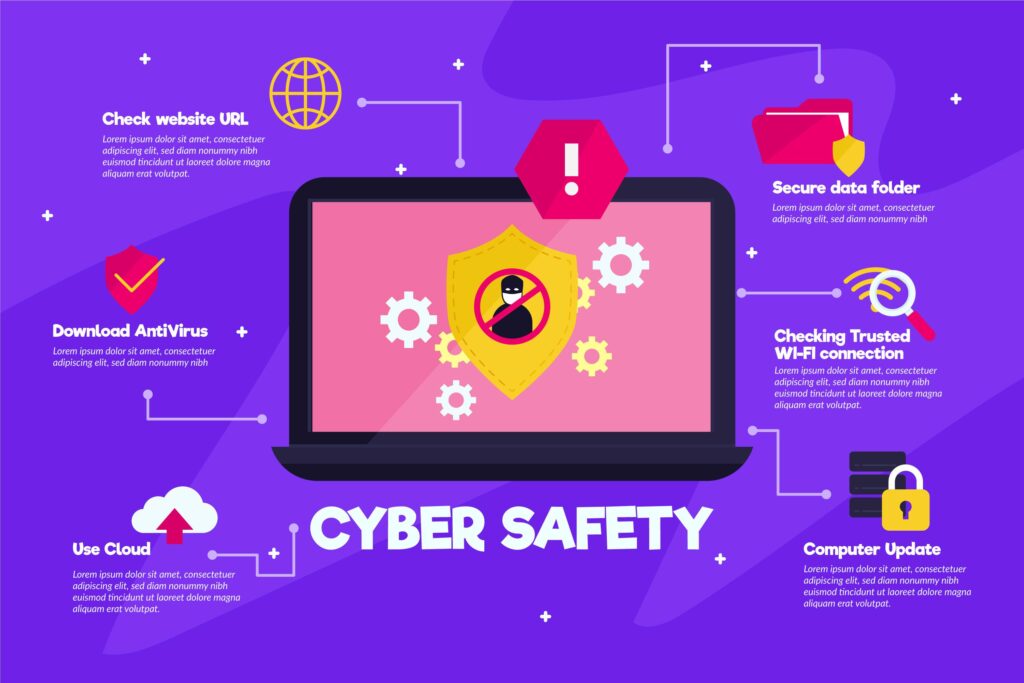In an era dominated by technology, where digital interactions have become an integral part of our lives, the need for robust cybersecurity is more critical than ever. The increasing frequency and sophistication of cyberattacks call for a proactive approach in defending against them. While investing in cutting-edge cybersecurity tools is essential, it’s equally important to foster a security-conscious culture within organizations and among individuals. This article explores the importance of cybersecurity awareness and strategies for building a security-conscious culture in our digitally connected world.

The Growing Cybersecurity Threat
The digital landscape has evolved dramatically over the past few decades. From the internet’s infancy to the modern era of smartphones, IoT devices, and cloud computing, our lives have become inextricably linked with technology. This digital transformation has brought numerous benefits, but it has also given rise to new threats.
Cyberattacks are becoming more sophisticated, encompassing a wide range of tactics, from phishing and ransomware to advanced persistent threats. These attacks target not only large corporations but also small businesses and individuals. In a hyperconnected world, everyone is potentially vulnerable, and the consequences of a successful cyberattack can be devastating. Data breaches, financial losses, identity theft, and reputational damage are just a few of the potential outcomes.
The Human Element in Cybersecurity
One common misconception about cybersecurity is that it’s primarily a technical issue, solvable solely through the implementation of the latest security tools and technologies. While these tools are indeed crucial, a significant portion of cybersecurity breaches are attributable to human error or negligence.
Cybercriminals often exploit human vulnerabilities through tactics like social engineering and phishing. An unsuspecting employee or individual might unknowingly click on a malicious link or provide sensitive information to a fraudster, leading to a security breach. This highlights the importance of the human element in cybersecurity and the need for a security-conscious culture.
The Role of Cybersecurity Awareness
Cybersecurity awareness is the foundation of a security-conscious culture. It involves educating employees, individuals, and the general public about the risks and best practices for staying safe in the digital realm. Here are some key elements of cybersecurity awareness:
-
Education: Providing training and resources to help individuals understand the most common cyber threats and how to recognize them. Regular training sessions can keep people informed about evolving threats and how to protect themselves.
-
Promotion of Best Practices: Encouraging good cybersecurity practices, such as creating strong, unique passwords, enabling multi-factor authentication, and keeping software and devices up-to-date.
-
Reporting Mechanisms: Establishing clear reporting mechanisms for suspected security incidents so that individuals know how to respond when they encounter a potential threat.
-
Cultivating a Security-Conscious Mindset: Creating a culture where individuals are empowered to take responsibility for their own cybersecurity and the security of the organization. This includes understanding that everyone has a role to play in maintaining a secure environment.
Building a Security-Conscious Culture
To foster a security-conscious culture, organizations and individuals can take several steps:
-
Leadership Involvement: It starts at the top. Leaders within organizations should demonstrate a commitment to cybersecurity by setting an example and allocating resources for training and awareness programs.
-
Regular Training and Awareness Programs: Implement regular cybersecurity training for employees, which should include real-world examples and practical advice on how to avoid falling victim to common threats.
-
Clear Security Policies: Establish clear security policies and guidelines that are easy to understand and follow. Make sure that everyone knows the consequences of failing to comply with these policies.
-
Encourage Reporting: Create a culture where individuals are not afraid to report suspicious activities or potential security incidents. Timely reporting can often help prevent more significant breaches.
-
Security Drills and Simulations: Conduct security drills and simulations to prepare employees for real-world scenarios. This hands-on experience can be invaluable in building a security-conscious culture.
-
Communication and Feedback: Maintain open lines of communication regarding cybersecurity. Encourage employees to provide feedback on security practices and be receptive to their suggestions for improvement.
-
Rewards and Recognition: Recognize and reward individuals and teams who demonstrate exemplary cybersecurity practices and contribute to the organization’s security.
The Benefits of a Security-Conscious Culture
A security-conscious culture brings numerous benefits to organizations and individuals alike:
-
Reduced Risk: By fostering awareness and good cybersecurity practices, the risk of successful cyberattacks is significantly reduced.
-
Cost Savings: Preventing security breaches can save organizations from costly consequences, such as data recovery, legal issues, and reputational damage.
-
Improved Reputation: A commitment to cybersecurity can enhance an organization’s reputation, making customers and partners more confident in their interactions.
-
Compliance: Many industries have strict regulatory requirements for data protection and cybersecurity. A security-conscious culture can help organizations meet these standards.
-
Peace of Mind: Individuals who are aware of cybersecurity best practices can navigate the digital world with greater confidence and peace of mind.
Conclusion
As our reliance on technology continues to grow, the importance of cybersecurity awareness and a security-conscious culture cannot be overstated. While investing in advanced cybersecurity tools is crucial, it’s equally important to recognize the human element in cybersecurity and take proactive steps to educate, empower, and protect individuals and organizations. Building a security-conscious culture is an ongoing process, but the benefits of doing so are well worth the effort. In a world where cyber threats are ever-present, it’s essential to work together to create a safer digital environment for everyone.